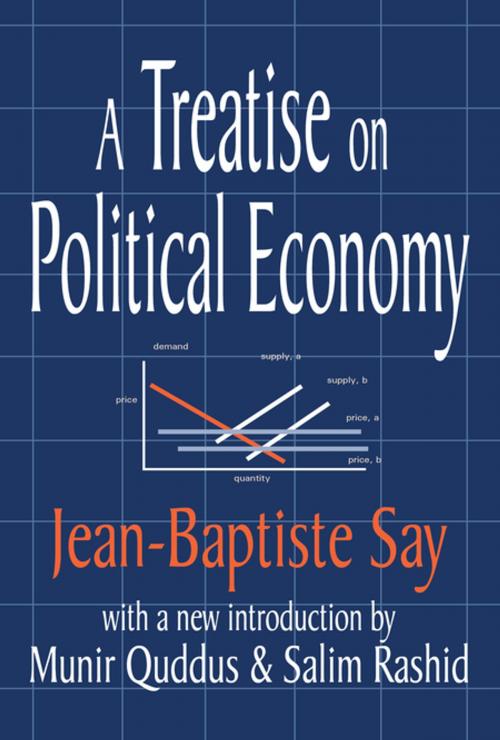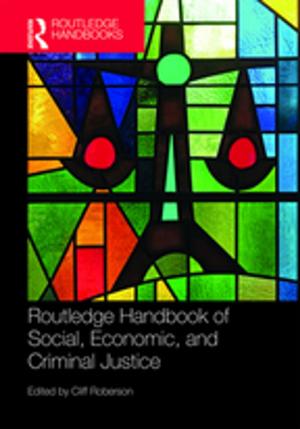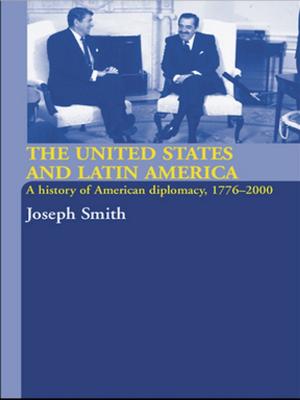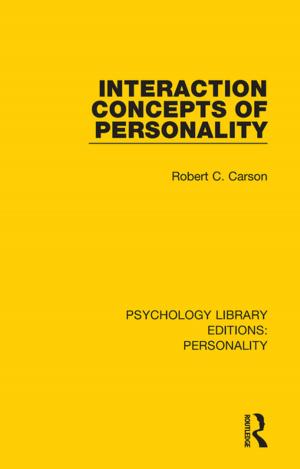A Treatise on Political Economy
Nonfiction, Social & Cultural Studies, Political Science, Politics, Economic Policy| Author: | ISBN: | 9781351315661 | |
| Publisher: | Taylor and Francis | Publication: | July 28, 2017 |
| Imprint: | Routledge | Language: | English |
| Author: | |
| ISBN: | 9781351315661 |
| Publisher: | Taylor and Francis |
| Publication: | July 28, 2017 |
| Imprint: | Routledge |
| Language: | English |
Jean-Baptiste Say (1767-1832) has been described as a revolutionary, an author of scholarly books and popular tracts, a social philosopher, a successful entrepreneur-a remarkable Renaissance man. He is best known as author of the law of markets, known as Say's law, and as the first to coin the term "entrepreneur." Say's concern with the average interested citizen and his zeal for economic education for the masses is most apparent in his classic work, A Treatise on Political Economy.
Readers will see that Say is without doubt a luminary of classical economics. He single-handedly revived the study of political economy from its decline and kept it alive during a difficult period of opposition to liberal ideas. Say had a missionary belief that society will be best served if the principles of political economy are widely disseminated and understood by the citizenry. His organization of the Treatise's subject matter-production, distribution, and consumption of wealth-continues to guide authors of economic textbooks to this day. His treatment of the role of the entrepreneur as a contributor to production different from that of either the manager or the capitalist was the most advanced of his times.
In their new introduction, Quddus and Rashid note that present-day readers of this volume will benefit from the remarkable freshness of Say's ideas. The longevity of this volume proves that good ideas can successfully withstand the test of time. The role played by the Treatise in spreading liberal economic ideas and especially laissez-faire and free trade in France, the rest of Europe, and in the newly independent United States must also be appreciated. One suspects Say would have liked nothing better than to have his Treatise attract entrepreneurs, managers, and other non-specialist readers to economics. Given the emphasis on capitalism, free markets and unrestricted global trade republication of this great classic could not be more timely. Political economists, social philosophers, and those in business fields will find it indispensable reading.
Jean-Baptiste Say (1767-1832) has been described as a revolutionary, an author of scholarly books and popular tracts, a social philosopher, a successful entrepreneur-a remarkable Renaissance man. He is best known as author of the law of markets, known as Say's law, and as the first to coin the term "entrepreneur." Say's concern with the average interested citizen and his zeal for economic education for the masses is most apparent in his classic work, A Treatise on Political Economy.
Readers will see that Say is without doubt a luminary of classical economics. He single-handedly revived the study of political economy from its decline and kept it alive during a difficult period of opposition to liberal ideas. Say had a missionary belief that society will be best served if the principles of political economy are widely disseminated and understood by the citizenry. His organization of the Treatise's subject matter-production, distribution, and consumption of wealth-continues to guide authors of economic textbooks to this day. His treatment of the role of the entrepreneur as a contributor to production different from that of either the manager or the capitalist was the most advanced of his times.
In their new introduction, Quddus and Rashid note that present-day readers of this volume will benefit from the remarkable freshness of Say's ideas. The longevity of this volume proves that good ideas can successfully withstand the test of time. The role played by the Treatise in spreading liberal economic ideas and especially laissez-faire and free trade in France, the rest of Europe, and in the newly independent United States must also be appreciated. One suspects Say would have liked nothing better than to have his Treatise attract entrepreneurs, managers, and other non-specialist readers to economics. Given the emphasis on capitalism, free markets and unrestricted global trade republication of this great classic could not be more timely. Political economists, social philosophers, and those in business fields will find it indispensable reading.















